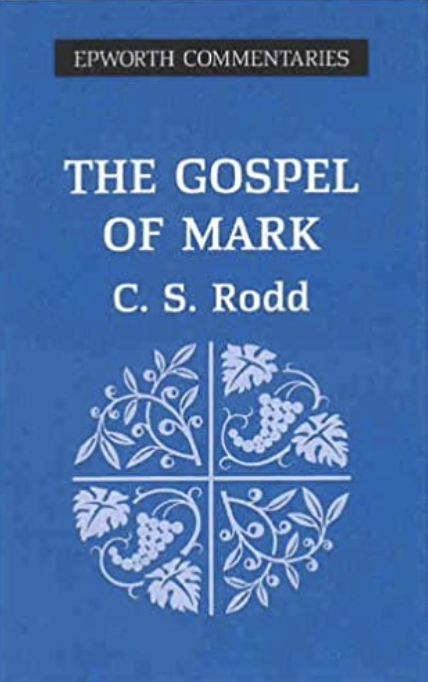Focus on Mark
Mark’s Gospel was the first to be written and is thought to be the most accessible of the Gospels. Reading it is often a great way for individuals or groups to engage with the good news of Jesus for the first time. The Resource Centre at High Street stocks a wide range of Biblical commentaries, and here are some thoughts on just three of them.
C. S Rodd - The Gospel of Mark 2005
This commentary is one of a series published by the Methodist publishers Epworth written by academics, ministers and members. The books explore biblical settings and narratives and aim to relate them to the needs of contemporary Christians.
At the start Rodd points out that we do not know for sure who wrote Mark’s Gospel, or when and why it was written - he leaves out any background introduction and dives straight into the text; for him the best approach to the Gospel is to read it as a continuous narrative. This approach is reflected in the style of the commentary which is written with no headings or chapters.
Rodd has a direct and engaging style. When exploring the Feeding of the Five thousand he writes ‘the question which comes into the mind of modern congregations is “what actually happened?”’. In response he suggests possible literal, rationalist and legend-based interpretations of the text, but highlights that the main purpose of the narrative is to express the power of Jesus.
Brower – A Commentary in the Wesleyan Tradition 2012
This Commentary is from a series which also has Methodist origins aiming to reflect ‘the best scholarship in the Wesleyan theological tradition’ but its layout couldn’t be more different. It contains a useful introduction which focuses on the historical background to the Gospel and also includes sections on Mark’s theology. The commentary is divided into units with titles such as ‘The announcement of the good news’ and each unit starts with comments on what’s ‘Behind the text’, followed by thoughts on what’s ‘In the Text’ and finally an exploration on what’s ‘From the text’.
Dividing the commentary into these three areas helps to clarify what kind of comment is being made whether it is about the historical background to the event, verse by verse details and meanings found in the text, or the possible significance and application of the story.
When Brower explores the feeding story in Mark 6, he first looks behind the text at what might have happened and considers the possible historical circumstance for a crowd of 5000 gathering around Jesus. Then he includes an extensive study of the words and meaning of the text of the story. Finally, he draws three points from the text: compassion has always been central to God’s purpose; the kingdom is not about achieving power and should not be the goal of the Church; and Jesus’ involvement of the disciples in the feeding shows how we are called today to deliver the direct care which Jesus provides.
Marcus Borg – Meeting Jesus in Mark 2009
Borg writes his Commentary from the perspective of a Christian and a mainstream Biblical Scholar. He includes the most thorough survey of background material on Mark and then organises the book into five sections covering the Gospel’s narrative of Jesus from the ‘Overture and Beginning’ to ‘Jerusalem, Execution, and Resurrection’. Borg then includes several pages of study questions which could provide some thought provoking starting points for a fellowship group. Regarding the Feeding of the 5000 he suggests comparing this account with the description found in the other Gospels and asks how this comparison contributes to our understanding of the event.
Throughout this book Borg emphasises that part of the importance of Mark comes from the way he was used by Luke and Matthew (About 90% of Mark is found in Matthew and 70% in Luke). Borg also emphasises what he calls the metaphorical meaning of Mark – the meaning which is more than literal or factual meaning. He points out that some parts of Mark’s Gospel tell us both about the memory of an event and its metaphorical meaning. For example, he suggests Jesus’ journey to Jerusalem was a journey which actually happened, but ‘Mark overlays the description of the journey with a metaphorical meaning: our own journey means following Jesus – on the way that leads to Jerusalem, death and resurrection.’
Ruth Peniket
May 2023



